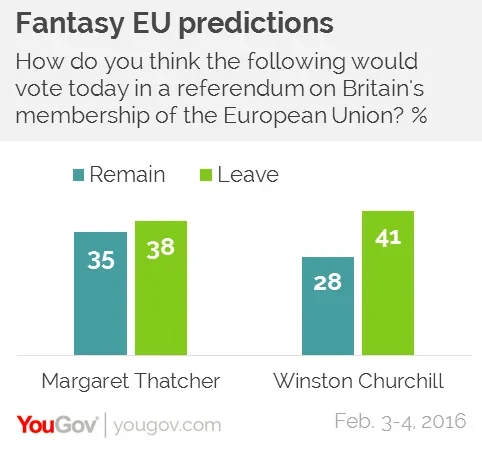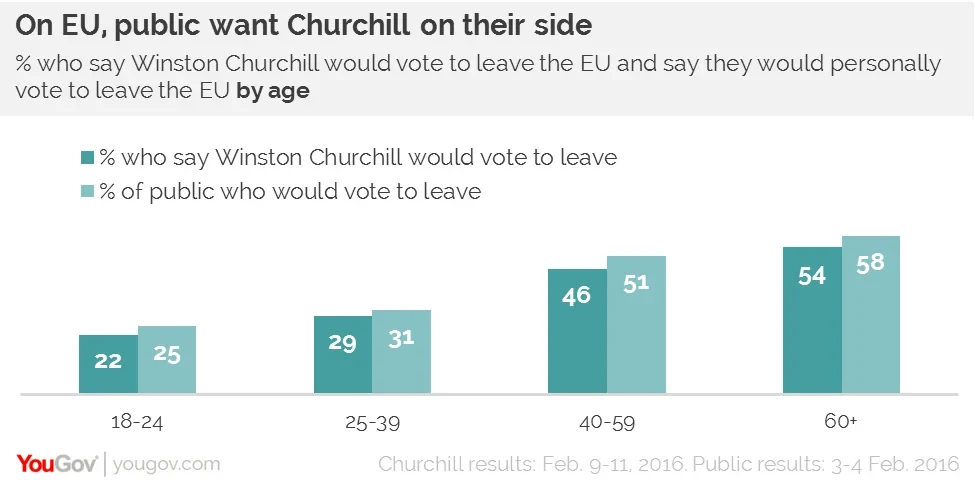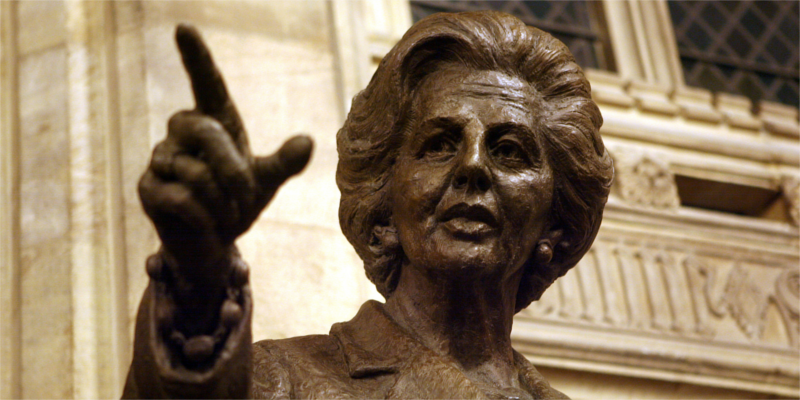British people tend to say Margaret Thatcher and Winston Churchill would both have voted to leave the European Union
Lord Powell, one of Margaret Thatcher’s closest advisers, challenged the widely held consensus that she believed Britain would be better off outside of the European Union last week, claiming Lady Thatcher would have accepted the renegotiation of our relationship tabled by David Cameron. “Margaret Thatcher’s heart was never in our membership of the EU. But l am convinced her head would continue to favour staying in on the conditions now on offer,” Powell wrote. The comment angered Thatcher’s allies, and veteran Eurosceptic Bill Cash revealed a private correspondence in which she described the EU as "contrary to British interests and damaging to our Parliamentary democracy". He said it was “inconceivable” she would have supported David Cameron’s deal.

New YouGov research reveals British people tend – slightly – to say Margaret Thatcher would have voted to leave the European Union (38%) rather than remain a member (35%).
Most Conservative voters on each side of the EU debate say Lady Thatcher would have backed their own view (61% of Tory Remain supporters say she would have voted Remain; 64% of Tory Leave supporters say she would have voted Leave). However Labour voters who want to leave are more likely to say she would have voted to remain a member (52%) and Labour Remain voters are divided over which way she would have voted – indicating more reluctance to see her championing their view.
The prediction is much more certain with Winston Churchill. 41% say he would have voted to leave the EU and 28% say he would have voted to remain a member. And people are keener to have him on their side – almost equal proportions in each age-group say Churchill would vote each way as say they would vote that way themselves.

In the latter years Margaret Thatcher's premiership was mired by the Europe question, as her refusal to to agree to a timetable for Britain to join the European Exchange Rate Mechanism led to the resignation of Geoffrey Howe, setting the stage for Michael Hesseltine's challenge for the leadership the next day. She eventually agreed to join the mechanism, under pressure from John Major, but the decision is widely blamed for Britain entering recession in the early '90s and we withdrew within two years.
PA image













